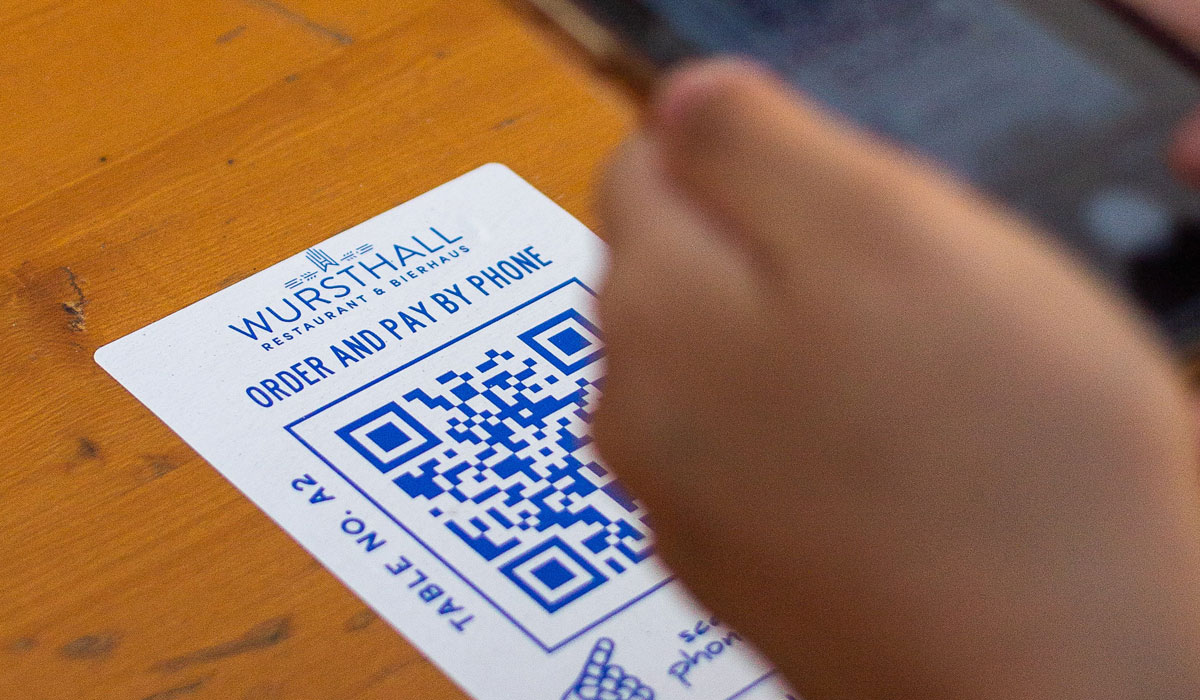With a recent announcement by the CDC that the spread of COVID-19 is accelerated by close contact indoors—primarily at places like on-site dining venues—the list of challenges faced by hospitality operators during the re-opening stage continues to grow. Limitations on maximum capacity, modifications to staff scheduling, and anxious consumers are just some of the roadblocks that stand in the way of increased productivity and profitability.
This raises the question: How to attract customers and kickstart operations while respecting and enforcing health and safety protocols, without sacrificing the bottom line? There isn’t a one-size-fits-all answer, but one thing is certain. Emerging technologies have gained new relevance in the context of the pandemic and will be a key ally in driving foot traffic and increasing consumer comfort levels with dining out. Designed to enhance the guest experience, these solutions can also increase profit margins, drive brand awareness, and bring more customers through the door.
The use of tech in the hospitality space certainly isn’t new, but the importance of incorporating it into a brand’s overall strategy is greater than ever. Perhaps the most obvious place to start is by eliminating as many shared high-contact surfaces as possible. Once thought to be a thing of the past, QR codes are back in the game, making life easier for both staff and consumers alike. They’re simple to use and just require a quick scan via smartphone camera to activate. In a time where “app fatigue” is a very real barrier to adoption, this is an added bonus.
Implementing QR code technology in the restaurant space can take on different forms, but the most impactful is to ensure that customers can access the menu, place an order, complete payment, and leave feedback—all in one place. During a pandemic, no one is eager to wait in long lines or crowded areas. With the help of a QR code, they’re in control, able to place orders at their convenience and pay directly through a web-based solution on their smartphone. This results in a more efficient, 100 percent contactless dining experience by reducing unnecessary human contact and minimizing the time spent in a shared space.
The flexibility of this type of technology appeals to all audiences, inspires greater trust and confidence, and places efficiency and convenience at the forefront. Brands that are able to evolve in response to the current landscape and changing customer expectations will thrive in what is otherwise an extremely trying time for the industry. In fact, a study carried out by MRM and Reach3 Insights found that one in four consumers indicated that the introduction of technology would make them more likely to visit a venue. Not only does it create a seamless and straightforward experience, but it also lends greater credibility to brands both big and small.
Another benefit of incorporating technology into the consumer journey is the variety of data that can be collected as a result. Tapping into analytics will allow for the development of tailor-made marketing strategies designed to attract customers in highly specific, and therefore effective, ways. Whether this means predicting future orders based on past preferences, pushing out personalized offers and discounts, or identifying areas for improvement, the possibilities are endless. Additionally, being able to access and respond to customer feedback will make it easier to spot pain points and empower staff to provide effective solutions in real time.
Given the complexity of the pandemic, the roadmap to success for hospitality operators is bound to include a few twists and turns. However, this doesn’t mean that things should simply be left to chance. Brands need to prioritize strategic planning, demonstrate readiness to adapt and evolve, and leverage the power of technology in innovative ways.
By establishing a solid framework and reaffirming a commitment to raising the bar, operators will gain deeper trust from their customers and guarantee that they’ll return for another visit.
Gabriel Weisz is passionate about developing innovative tech solutions for the hospitality industry. He founded Kallpod in 2014 and in less than five years, expanded the brand’s footprint to 1,000+ venues across North America, providing a streamlined experience for both venues and their customers. Inspired by the evolving power of digital, Gabriel and his team launched Kontactless in August 2019. A 100% mobile solution, Kontactless makes ordering and payment simpler than ever, without the need for extra hardware or separate apps to download.

